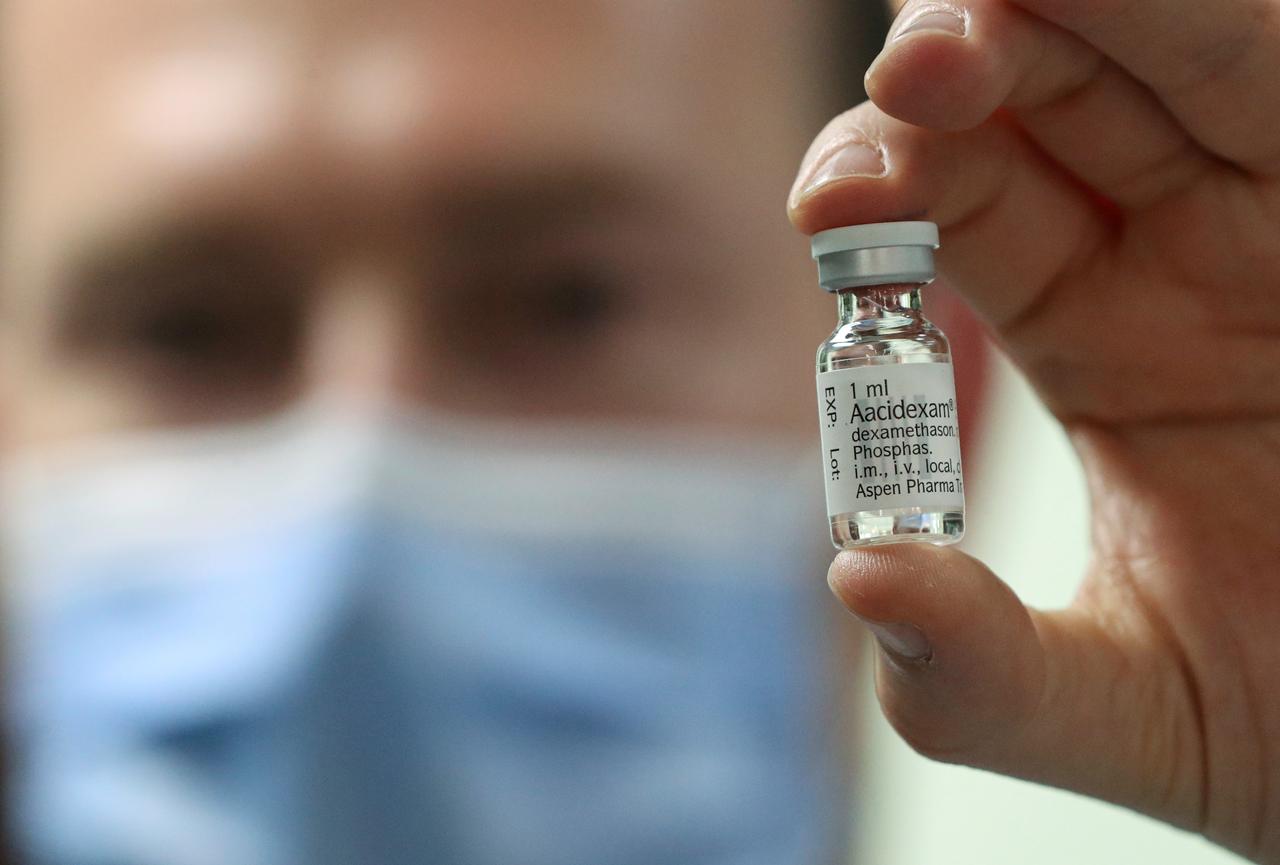
The following is a roundup of some of the latest scientific studies on the novel coronavirus and efforts to find treatments and vaccines for COVID-19, the illness caused by the virus.
 |
The following is a roundup of some of the latest scientific studies on the novel coronavirus and efforts to find treatments and vaccines for COVID-19, the illness caused by the virus.
Steroids reduce death risk from severe COVID-19
Treating critically ill COVID-19 patients with corticosteroid drugs reduces the risk of death by 20% regardless of which steroid is used, according to an analysis of seven international trials published on Wednesday in the Journal of the American Medical Association. The analysis, which pooled data from separate trials of low dose hydrocortisone, dexamethasone and methylprednisolone, found that they improve survival of COVID-19 patients in intensive care units. "This is equivalent to around 68% of (these) patients surviving after treatment with corticosteroids, compared to around 60% surviving in the absence of corticosteroids," the researchers said in a statement. The findings prompted the World Health Organization (WHO) to update its treatment advice to include a "strong recommendation" for steroid use in patients with severe COVID-19. The evidence shows that if you give corticosteroids, there are 87 fewer deaths per 1,000 patients, said WHO representative Janet Diaz. "Impressive as these results are, this is not a cure," said Anthony Gordon of Imperial College London, who also worked on the analysis. "So it's vital that we keep up all the prevention strategies."
Hepatitis C drugs show promise against the coronavirus
Antiviral drugs developed to the treat hepatitis C may also be effective against the coronavirus, a new report suggests. Researchers examined more than 6,000 drugs with a history of safe use in humans to see if any of them could block an important protein in the life cycle of the virus called the main protease. "The most potent of these were approved drugs for treating hepatitis C," study leader Brian Kraemer of the University of Washington School of Medicine told Reuters. He singled out boceprevir and narlaprevir, protease inhibitors developed by Merck & Co that have been superceded by more effective hepatitis C treatments. If the effects of these drugs against the novel coronavirus are confirmed in clinical trials, they would likely be given as part of a combination therapy to employ more than one line of attack against the virus, researchers said. The advantage of finding potent treatments among approved drugs is that they "can be advanced rapidly to clinical trials without extensive multi-year preclinical development efforts," the researchers said in their report, posted on bioRxiv ahead of peer review.
Test for virus and antibodies together, researchers say
COVID-19 can be more accurately diagnosed by simultaneously looking for the virus and its antibodies, according to UK doctors who have piloted this approach. Traditionally, COVID-19 is diagnosed if tests show genetic material from the virus, called RNA, on swabs taken from the nose and throat. But RNA levels on swabs decline after five days of infection. Therefore, the researchers also look for antibodies, which generally appear after RNA levels start falling. In a small trial, this approach "significantly improved" the diagnosis of COVID-19, researchers reported on Tuesday in Cell Reports Medicine. They used the Simple Amplification-based assay II, or SAMBA II, to look for RNA, and a combination of two finger prick tests to look for antibodies against the coronavirus spike protein. RNA results were available within hours and antibody results in minutes. The RNA tests identified 80% of COVID-19 patients, but when combined with the rapid antibody tests, 100% were correctly identified, researchers reported. The combination "results in very high sensitivity for COVID-19 diagnosis with very high specificity," the researchers said, meaning few false positives or false negatives. Combining these point-of-care tests "could be a game-changer ... particularly in the event of a second wave arising during flu season, when it will not be immediately clear whether the patients' had COVID-19 or seasonal flu," coauthor Ravi Gupta from University of Cambridge said in a statement.
High-rise plumbing may be route of coronavirus spread
COVID-19 may spread through high-rise apartment buildings via plumbing pipes, new reports suggest. Researchers on Tuesday in Annals of Internal Medicine said coronavirus in fecal matter flushed by an ill resident may have spread upward via aerosols in the drainage pipe system in a building in Guangzhou, China, causing COVID-19 infections in three families living on higher floors. Last month, in the Environment International journal, a separate team reported data indicating possible aerosol transmission of the novel coronavirus through rising vapors in high-rise plumbing in China. Neither report proves that transmission through plumbing caused infections. Still, they suggest ways to prevent the possibility, such as adequate hygiene and bathroom ventilation. In particular, to block fecal aerosol transmission through plumbing pipes, U-shaped water drainage traps under sinks, tubs and showers should not be allowed to dry out, the authors of the Annals paper advise.
(Source: Reuters)





